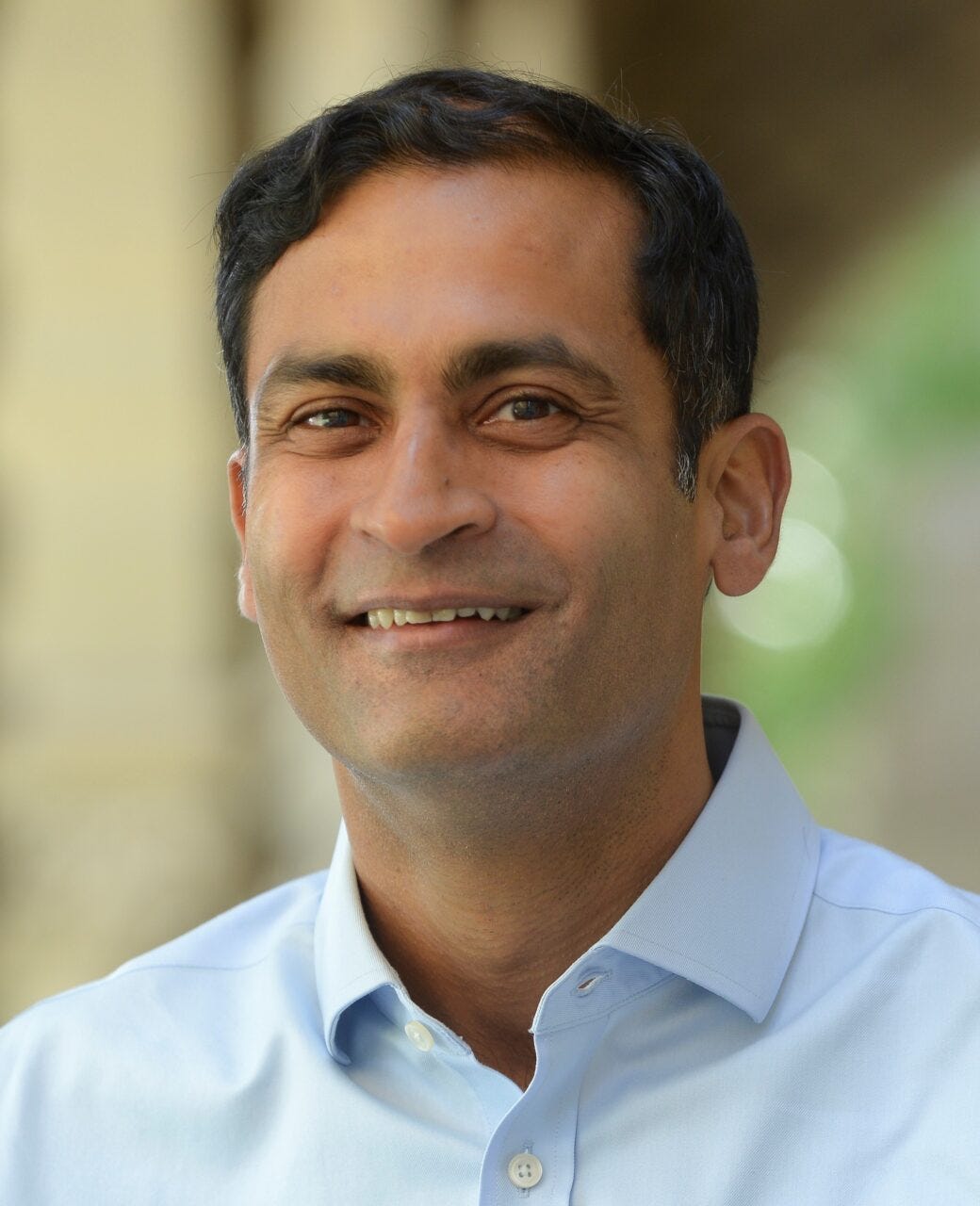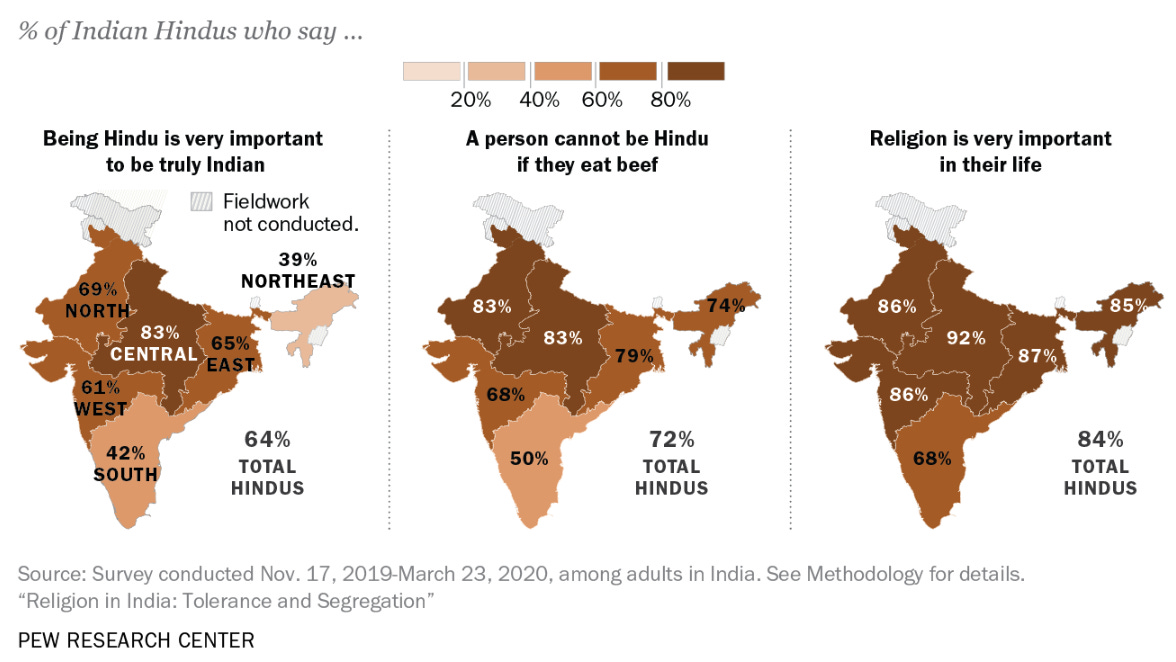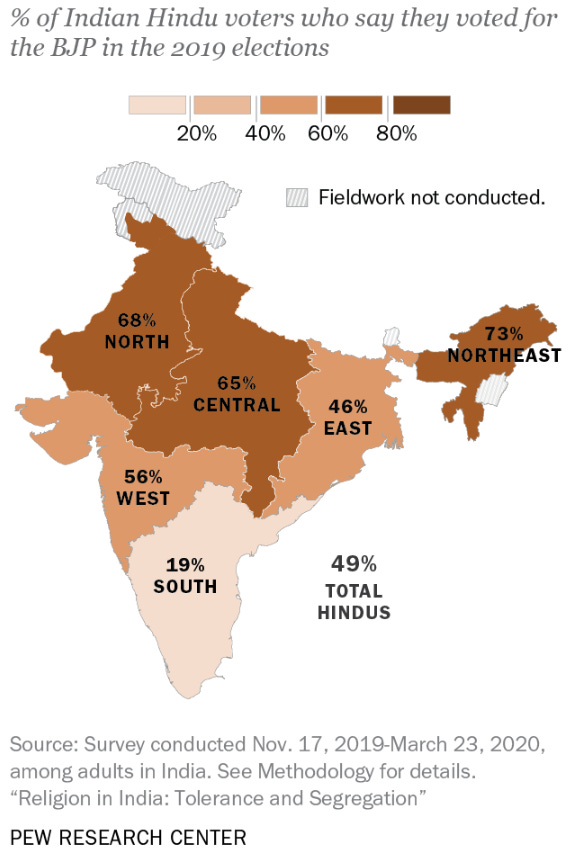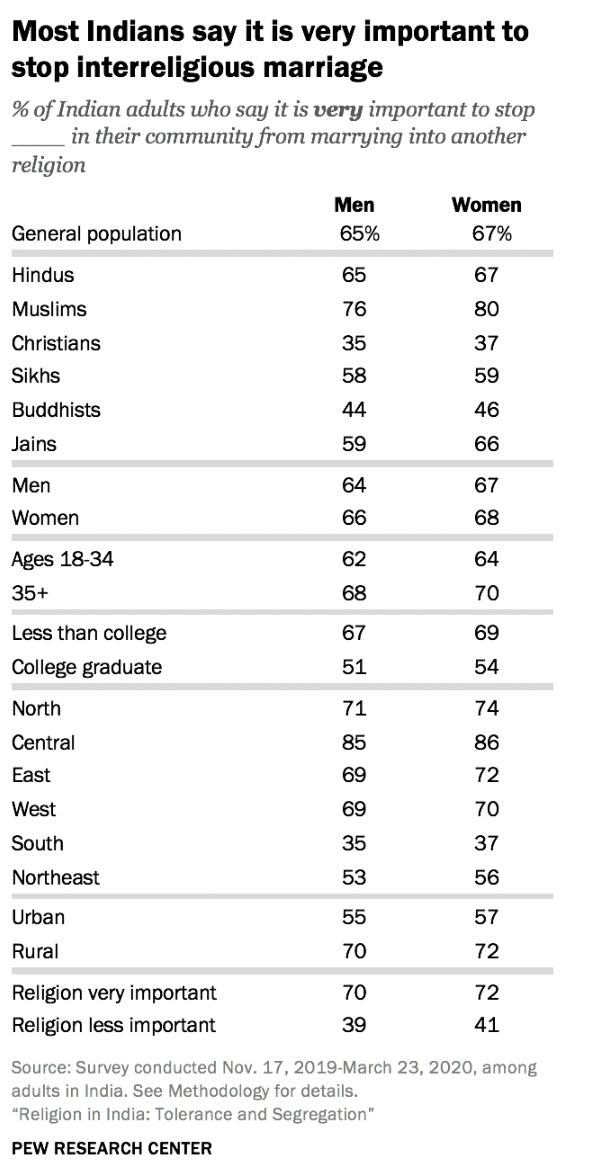What Prevents Hindu-Muslim Conflict? Podcast with Professor Saumitra Jha
Saumitra Jha (Associate Professor of Political Economy at the Stanford Graduate School of Business) joins my podcast (“Rocking Our Priors”) to discuss what prevents Hindu-Muslim conflict.
In “Trade, Institutions, and Ethnic Tolerance: Evidence from South Asia”, Jha argues that 3 conditions encourage peaceful inter-ethnic cooperation:
Ethnic group members can produce goods and service that complement, rather than compete with each other;
Inter-ethnic complementarity would be costly to seize or copy;
The more vulnerable ethnic group has good outside options, so could credibly threaten to stop production or leave.
Competition increases the likelihood of conflict. The stronger ethnic group would try to reduce competition by attacking the weak, seizing their profits and/or suppressing production. Fixed goods (like land, wealth or machines) are especially vulnerable to seizure, so raise risks of conflict.
Saumitra Jha argues that, for almost a thousand years, trade in the Indian Ocean was coordinated by Muslim pilgrim routes. Mecca was one of the largest markets in the world, but only accessible to Muslims. These traders were highly mobile, with plenty of outside options, and sought sheltered harbours. Indian ports with geographical inlets that could provide safety were heavily favoured. Mutually advantageous trade was then consolidated through norms and organisations, which promoted peaceful co-existence.
Jha finds strong cultural persistence. Elsewhere in South Asia, there were waves Hindu-Muslim riots during the the Khilafat/ Non-Cooperation movement of 1919-22, as well as during Partition. Medieval ports, however, remained far more peaceful.
Listen on Spotify or iTunes, etc.
My Questions
Do you really think that culture is determined by economic incentives? What about the power of story-telling and vilification?
In the 17th Century, Shivaji mobilised Hindus to rise up against the Adil Shahi dynasty and the Mughals.
In the early 20th century, Hindu nationalists spread unsubstantiated allegations of love jihad.
Today, Shiv Sena and Hindu nationalist pop stars encourage hatred, by spreading stories of Muslim population growth and love jihad.
Kunal Prohit has a new book on “H-Pop”. Those Hindu nationalist songs hardly mention economic competition.
India’s civil service examinations are perhaps the biggest competition today, but Muslims are not the major competitors. Very Muslims few clear. And yet there is major Hindu Nationalism. Doesn’t that tell us that perceived economic competition is irrelevant to inter-religious violence?
Culture seems to be a major predictor of support for the BJP
Most Hindus in North and Central India say that being Hindu is fundamental to being Indian, Hindus should not eat beef, and they are very religious. Those beliefs are strongly correlated with support for Hindu Nationalism. Doesn’t this tell us that the core driver of inter-religious conflict is nothing to do with economics, but it is in fact cultural?
Atreyee Sen has a brilliant book on “Shiv Sena Women”, in the slums of Bombay, who mobilise against Muslims. These women aren’t necessarily targeting their economic competitors. But they are motivated by hatred.
Contrary to your theory, Gujaratis and Marathis often express strong Hindu nationalist beliefs. By contrast, only 35% of South Indians say it’s important to stop inter-religious marriage. So isn’t the South the big exception, which we need to explain??









Does it make sense to label South India as less culturally tight than North India? Isn't South India have higher rates of endogomy than North India?
RSS has traditionally been very anti caste because they wanted to create a shared Hindu identity. By that logic if Hindus become less castist (less culturally tight on one dimension) they might become more anti Muslim (more culturally tight on another dimension). From what I understand BJP supporters tend to be urban Hindus who vote on religious lines and not caste lines.
As people urbanise they go from worshipping small gods to big gods. From local identity to large impersonal identity.
That might explain the falling popularity of Sufi saints in Bangladesh. As we urbanised we stopped worshipping local saints (which sometimes even involved giving patronage to local hindu gods) and identifying more to the "global Muslim community". As Bengali Muslims get richer and more likely to personal go to Mecca for pilgrimage this will strengthen the motion of the global Muslim community.
Unfortunately this will increase the probably of anti Hindu violence in Bangladesh as the country urbanises and gets richer. As a non Muslim Bengali my prospects aren't looking too good.